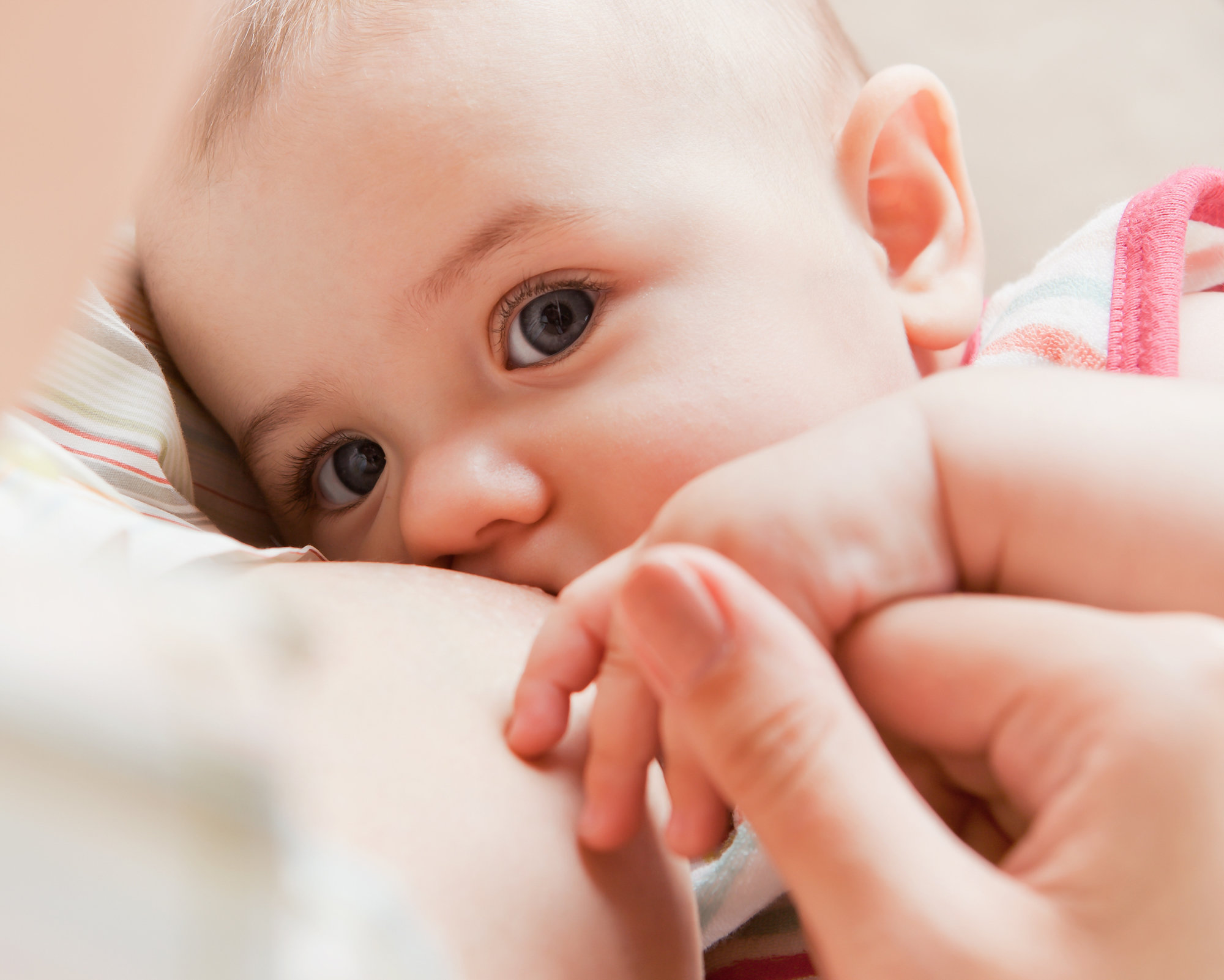The keto diet seems like a new trend, but it has actually been used since the 1920s to treat epilepsy. The basics of the diet are this: You eat an incredibly low amount of carbs, a moderate amount of protein, and a very high amount of fat (percentages vary for each person). If you stick to this plan for anywhere from three days to a week, says Tastaholics’s Complete Keto Guide for Beginners, your body enters a state called ketosis, in which you’re burning ketones — a byproduct of fat breaking down in the body — for energy, instead of the glucose you get from eating carbs. After that, the pounds supposedly start falling off.
More from CafeMom: This Mom’s Favorite Thing About Being a Parent Is the One Thing She Swore She’d Never Do
If you Google “ketogenic diet,” crazy weight loss stories pop up. People claim to have lost 20 pounds, 40 pounds, 60 pounds, all in a fairly short amount of time and without much effort. But keto is no easy-peasy diet: You have to throw out all the carbs, which means all the bread, beans, sugary stuff, grains, and cereal, plus all vegetable and seed oils. Instead, you eat only dairy, meat, fish, eggs, vegetables, olive oil, and a few other things, like fermented foods and unsweetened tea. For some, this might not sound that bad, but how does a strict diet like this really affect small babies?
First, there’s the calorie concern. According to nutritionist Rosanne Rust, MS, RND, LDN, a nursing woman needs an extra 650 calories a day to support good lactation. “A balanced diet with at least 1800 calories is recommended,” she tells CafeMom — less than that will likely result in reduced milk production. KellyMom, a recognized online resource for breastfeeding moms, notes that most women must eat between 1500-1800 calories per day to maintain milk supply, and should even stay on the higher end of that, as any sudden drop in calories can hurt production.
But it isn’t just about calories and your supply; there’s also a nutritional concern for breastfeeding moms on keto. According to Compound Solutions’ Definitive Guide to Micronutrients in the Ketogenic Diet, a keto diet may be low in needed vitamins C and K, calcium, potassium, chloride, and magnesium. As Rust notes, the foods a breastfeeding woman would cut out if she’s putting herself into ketosis, including beans and and grains, are “very nutritious and an excellent source of vitamins and minerals” for moms producing breast milk. “If a lactating woman isn’t getting the calcium she needs during pregnancy and lactation, her body will rob it from her bones, which can result in osteoporosis later in life,” she warns.
Another major concern for breastfeeding moms on keto is whether or not ketones, the chemical byproducts of burning fat for energy, can pass through the breast milk and affect nursing babies. Ketones, says Peter Attia, MD, are an evolutionary advantage — the body can run on them instead of glucose, and since we can’t store more than 24 hours worth of glucose, ketones surely saved primitive food foragers from certain death. But when you hit keto-adaptation, you go from using glucose to using ketones for energy. “Specifically,” Attia says, “the brain goes from being primarily dependent on glucose to being dependent on beta-hydroxybutyrate [one of the three types of ketones].” This is cool in an adult. But no one knows what it does to a growing baby — a baby whose brain is growing, perhaps faster than any other part of his or her body, and forming vital neural connections that will remain in place for the rest of his or her life.
Baltimore Mercy Medical Center lactation consultant Deedra Franke, RN, BSN, IBCLC, tells CafeMom, “Glucose is fuel for the infant brain to grow.” She argues that ketones enter the breast milk, and no one is sure they’re safe for infants. She also says breastfeeding moms should have their carbohydrate consumption set by a doctor to ensure they’re getting enough. Even the Atkins Center — the organization behind the similarly low-carb Atkins Diet, which also helps people achieve weight loss by going into Ketosis — instructs breastfeeding moms to eat more carbohydrates than is usually allowed on their diet plan.
But others, like Sara-Chana Silverstein, a lactation consultant who’s worked with over 20,000 babies, claim that ketones don’t pose any risk to nursing babies. “The breast is an amazing filter,” she tells CafeMom. Plus, she argues, the keto diet means no potato chips, so how could that not be great for a baby?
More from CafeMom: 16 Powerful Breech Birth Photos That Prove It Can Be Done
According to international breastfeeding organization La Leche League, it’s unknown if ketones — which they identify as any of three potentially “toxic, acidic chemicals” that build up in the bloodstream while a person is on a low carb diet — enter breast milk or what levels would pose a danger to a breastfeeding infant. Regardless, it seems most experts stand in agreement that a strict ketogenic diet is not a guaranteed safe weight-loss solution for the breastfeeding mother.
There are, of course, tenets of the keto diet that breastfeeding moms can safely adopt, such as eating fewer processed carbohydrates, upping their vegetable intake, and eating as many whole and healthy foods as possible. And, as IBCLC Deedra Frank says, a breastfeeding mom can always consult her doctor if she’s truly determined to alter her diet. But, when it comes to keto, it seems the the potential risks — both for your milk supply and the health of your baby — may be too high.


title: “What Experts Really Think About Breastfeeding On The Keto Diet” ShowToc: true date: “2024-09-09” author: “Timothy Wellman”
The keto diet seems like a new trend, but it has actually been used since the 1920s to treat epilepsy. The basics of the diet are this: You eat an incredibly low amount of carbs, a moderate amount of protein, and a very high amount of fat (percentages vary for each person). If you stick to this plan for anywhere from three days to a week, says Tastaholics’s Complete Keto Guide for Beginners, your body enters a state called ketosis, in which you’re burning ketones — a byproduct of fat breaking down in the body — for energy, instead of the glucose you get from eating carbs. After that, the pounds supposedly start falling off.
More from CafeMom: This Mom’s Favorite Thing About Being a Parent Is the One Thing She Swore She’d Never Do
If you Google “ketogenic diet,” crazy weight loss stories pop up. People claim to have lost 20 pounds, 40 pounds, 60 pounds, all in a fairly short amount of time and without much effort. But keto is no easy-peasy diet: You have to throw out all the carbs, which means all the bread, beans, sugary stuff, grains, and cereal, plus all vegetable and seed oils. Instead, you eat only dairy, meat, fish, eggs, vegetables, olive oil, and a few other things, like fermented foods and unsweetened tea. For some, this might not sound that bad, but how does a strict diet like this really affect small babies?
First, there’s the calorie concern. According to nutritionist Rosanne Rust, MS, RND, LDN, a nursing woman needs an extra 650 calories a day to support good lactation. “A balanced diet with at least 1800 calories is recommended,” she tells CafeMom — less than that will likely result in reduced milk production. KellyMom, a recognized online resource for breastfeeding moms, notes that most women must eat between 1500-1800 calories per day to maintain milk supply, and should even stay on the higher end of that, as any sudden drop in calories can hurt production.
But it isn’t just about calories and your supply; there’s also a nutritional concern for breastfeeding moms on keto. According to Compound Solutions’ Definitive Guide to Micronutrients in the Ketogenic Diet, a keto diet may be low in needed vitamins C and K, calcium, potassium, chloride, and magnesium. As Rust notes, the foods a breastfeeding woman would cut out if she’s putting herself into ketosis, including beans and and grains, are “very nutritious and an excellent source of vitamins and minerals” for moms producing breast milk. “If a lactating woman isn’t getting the calcium she needs during pregnancy and lactation, her body will rob it from her bones, which can result in osteoporosis later in life,” she warns.
Another major concern for breastfeeding moms on keto is whether or not ketones, the chemical byproducts of burning fat for energy, can pass through the breast milk and affect nursing babies. Ketones, says Peter Attia, MD, are an evolutionary advantage — the body can run on them instead of glucose, and since we can’t store more than 24 hours worth of glucose, ketones surely saved primitive food foragers from certain death. But when you hit keto-adaptation, you go from using glucose to using ketones for energy. “Specifically,” Attia says, “the brain goes from being primarily dependent on glucose to being dependent on beta-hydroxybutyrate [one of the three types of ketones].” This is cool in an adult. But no one knows what it does to a growing baby — a baby whose brain is growing, perhaps faster than any other part of his or her body, and forming vital neural connections that will remain in place for the rest of his or her life.
Baltimore Mercy Medical Center lactation consultant Deedra Franke, RN, BSN, IBCLC, tells CafeMom, “Glucose is fuel for the infant brain to grow.” She argues that ketones enter the breast milk, and no one is sure they’re safe for infants. She also says breastfeeding moms should have their carbohydrate consumption set by a doctor to ensure they’re getting enough. Even the Atkins Center — the organization behind the similarly low-carb Atkins Diet, which also helps people achieve weight loss by going into Ketosis — instructs breastfeeding moms to eat more carbohydrates than is usually allowed on their diet plan.
But others, like Sara-Chana Silverstein, a lactation consultant who’s worked with over 20,000 babies, claim that ketones don’t pose any risk to nursing babies. “The breast is an amazing filter,” she tells CafeMom. Plus, she argues, the keto diet means no potato chips, so how could that not be great for a baby?
More from CafeMom: 16 Powerful Breech Birth Photos That Prove It Can Be Done
According to international breastfeeding organization La Leche League, it’s unknown if ketones — which they identify as any of three potentially “toxic, acidic chemicals” that build up in the bloodstream while a person is on a low carb diet — enter breast milk or what levels would pose a danger to a breastfeeding infant. Regardless, it seems most experts stand in agreement that a strict ketogenic diet is not a guaranteed safe weight-loss solution for the breastfeeding mother.
There are, of course, tenets of the keto diet that breastfeeding moms can safely adopt, such as eating fewer processed carbohydrates, upping their vegetable intake, and eating as many whole and healthy foods as possible. And, as IBCLC Deedra Frank says, a breastfeeding mom can always consult her doctor if she’s truly determined to alter her diet. But, when it comes to keto, it seems the the potential risks — both for your milk supply and the health of your baby — may be too high.

